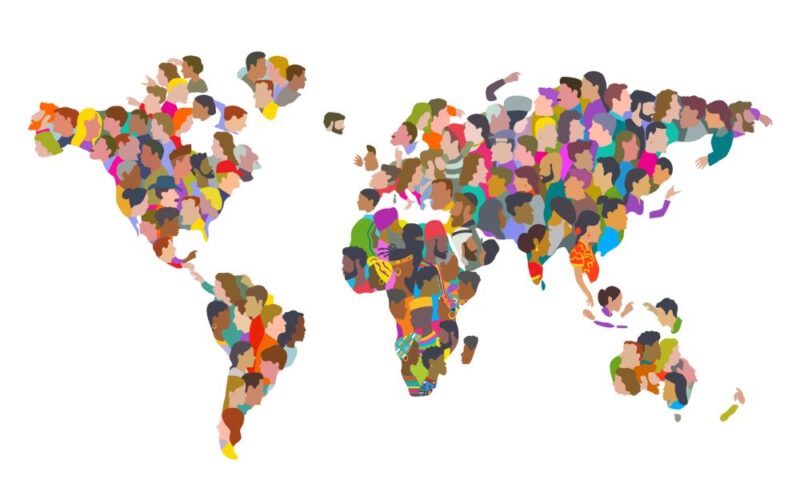
Making Global DEI Work for Everybody
Pursuing diversity, equity, and inclusion goals can become more complex when you’re moving beyond your familiar communities. Two experts recommend first meeting groups where they are.
Associations have done so much to expand their efforts around DEI in recent years that it can be easy to forget that it’s still a relatively new thing. So there are bound to be hiccups along the way. That was something I wrote about a couple of weeks back, when Factum Global CEO Francisco Gomez discussed the need for “cultural humility” among associations, especially when they’re doing work around the world.
How does that work in practice? For one thing, it involves not assuming that the American approach to DEI automatically translates to other cultures, and making an active effort to meet people where they are. “We make sure that the language we use within the regions we work with is appropriate,” said Peter J. O’Neil, FASAE, CAE, CEO of ASIS International, a Factum client. “We’re making sure that we’re using words that resonate in the region or the locality.”
But the conversations that ensue won’t necessarily map to American definitions of inclusion. “In the Middle East and North Africa, when you talk about equity and inclusion, you very quickly get into a lot of conversations around politics, religion, and basic cultural norms,” he said. “And if you think that they’re going to immediately conform to a Western view of inclusion or equity, you’ve set yourself up for failure.”
For its part, O’Neil says, ASIS has a lot of discussions about “decision-making norms and participation norms,” noting that different cultures take different steps toward that.
Assuming groups outside North America will immediately conform to a Western view of DEI is setting yourself up for failure.
As an example, he points to a recent conference ASIS hosted in Saudi Arabia. “They would tell you they took very significant steps to really do their best to be more inclusive and diverse in their speaker base and their volunteer base,” he said. “A Western person could go look at that and say, ‘Are you kidding me? You consider those numbers a success?’ This is where context and relevancy matters. It’s happening in the context and relevancy of what we’re experiencing as an organization in the Middle East.”
That engagement with different cultures is meaningful even if you’re not working outside of North America. Danielle Duran Baron, MA, MBA, CAE, vice president of marketing, communications, and industry Relations at the School Nutrition Association (also a Factum client), notes that shifting conversations around ways to improve nutrition at schools have to keep the diversity of the students being served in mind.
For instance, as attention grew around including plant-based proteins in school meals, Baron took the question to a member. “He said, ‘Yeah, I’d love to have something like this, but my district is 85 percent Latino, and those kids like meat,’” she says. “You have to have an understanding of the population you’re serving.”
Opening the conversational lines to different cultures, rather than addressing them in a top-down manner, has been effective at SNA. For instance, in 2021, the group announced plans to celebrate Hispanic Heritage Month by featuring one member a day. It soon found it had more members volunteering to participate than would fit in a monthlong stretch. It was a lesson that assumptions about engagement levels around certain populations need challenging, and that opening discussions can bolster that engagement. A podcast SNA is launching will also include one episode in Spanish.
“They were just ready for us to say, ‘We see you,’” Baron said. “And then at the first inkling that they got from us, they came running.”






Comments